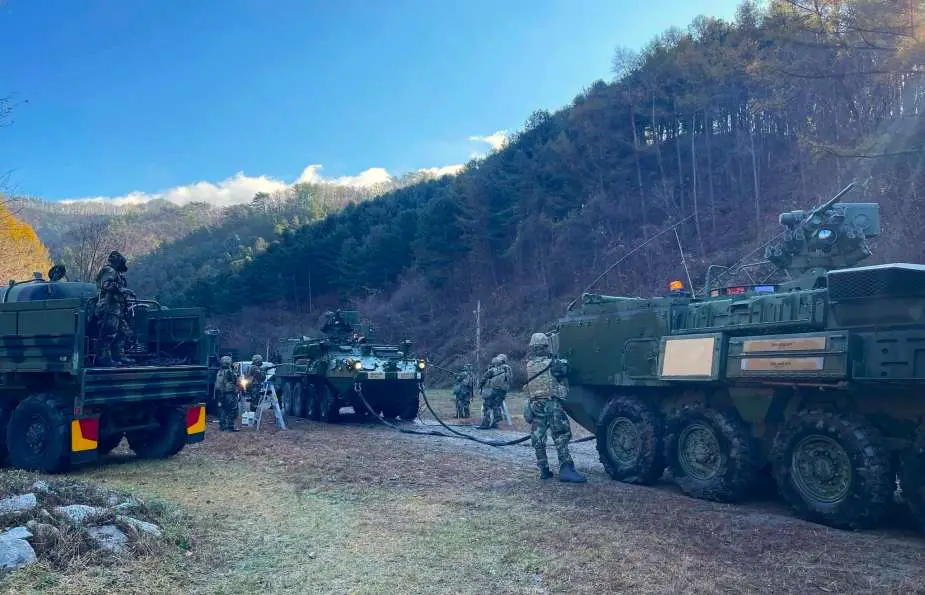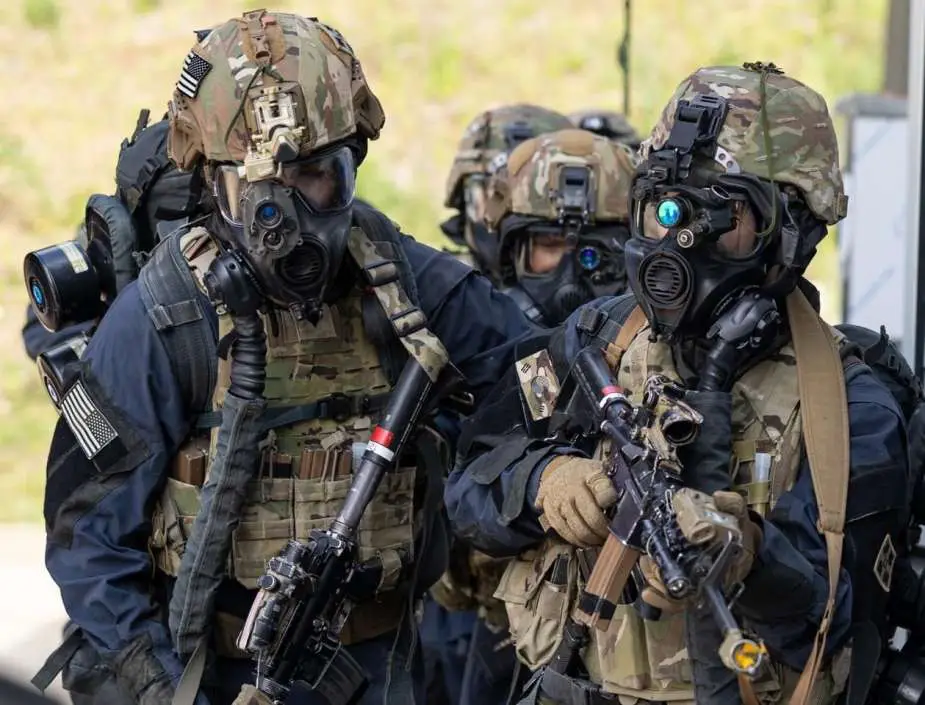Breaking news
US CBRN soldiers reinforce defense capabilities near Korea's DMZ.
A U.S. Army Chemical Corps unit is currently engaged in joint training exercises with American and South Korean forces near the heavily fortified Korean Demilitarized Zone, as reported by Walter T. Ham IV.
Follow Army Recognition on Google News at this link

American soldiers from the 59th CBRN Company (Hazardous Response) "Mountain Dragons" are bolstering the Republic of Korea-U.S. Alliance combined defense posture during a rotational deployment near the Korean Demilitarized Zone (Picture source: courtesy photo)
Members of the 59th Chemical, Biological, Radiological, Nuclear (CBRN) Company, also known as the “Mountain Dragons,” are playing a crucial role in strengthening the defense collaboration between the Republic of Korea and the United States during their deployment close to the Korean Demilitarized Zone.
Since their deployment from Fort Drum, New York, to South Korea in July 2023, this CBRN company has been actively participating in various combat training missions alongside the 23rd CBRN Battalion, 2nd Infantry Division Sustainment Brigade, and 8th Army. The company's warrant officer, Chief Warrant Officer 3 Philip M. Ellis, with 16 years in the U.S. Army Chemical Corps, has overseen the integration of the Mountain Dragons with units such as the 2nd Stryker Brigade Combat Team, 210th Fires Brigade, and the 2nd Infantry Division Sustainment Brigade.
During their nine-month rotation in South Korea, the 59th CBRN Company has prioritized combat readiness, honing their skills in CBRN reconnaissance and decontamination. They have also been heavily involved in counter-weapons of mass destruction training, focusing on chemical, biological, and nuclear hazards.
An intense seven-day validation exercise tested the company's capabilities in a challenging environment, targeting chemical, biological, and nuclear threats across diverse operational areas, including underground settings. The company's proficiency in tactical and technical aspects of their wartime missions was notable, particularly in executing complex chemical, biological, and nuclear training exercises both during the day and at night. The Mountain Dragons' performance in South Korea, as observed by Ellis, has been outstanding, setting a high standard among rotational chemical companies in the Republic of Korea.
In addition to these exercises, the company collaborated with several Republic of Korea military units during the Exercise Ulchi Freedom Shield in August, earning recognition from Brig. Gen. Jaehoon Yoo of the Republic of Korea Army.
The 59th CBRN Company is part of the larger 83rd CBRN Battalion, 48th Chemical Brigade, and the 20th CBRNE Command, the premier CBRNE unit of the U.S. military, known for its global deployments in confronting and mitigating hazardous threats. This deployment is part of the ongoing commitment of the 20th CBRNE Command, which regularly sends units to South Korea, reaffirming the 70-year-old ROK-U.S. Alliance that began with the Mutual Defense Treaty signed on October 1, 1953.
The ROK-U.S. Alliance, born from wartime collaboration, has been pivotal in maintaining peace and stability on the Korean Peninsula and aiding South Korea's emergence as a major economic and cultural power. Capt. Evan P. Shortsleeve, commander of the 59th CBRN Company, expressed pride in contributing to this longstanding alliance, particularly during its 70th anniversary, emphasizing the company's significant role as a forward-deployed hazard response unit in the U.S. Army.

American soldiers from the 59th CBRN Company (Hazardous Response) "Mountain Dragons" are bolstering the Republic of Korea-U.S. Alliance combined defense posture during a rotational deployment near the Korean Demilitarized Zone (Picture source: courtesy photo)
Defense News November 2023


























